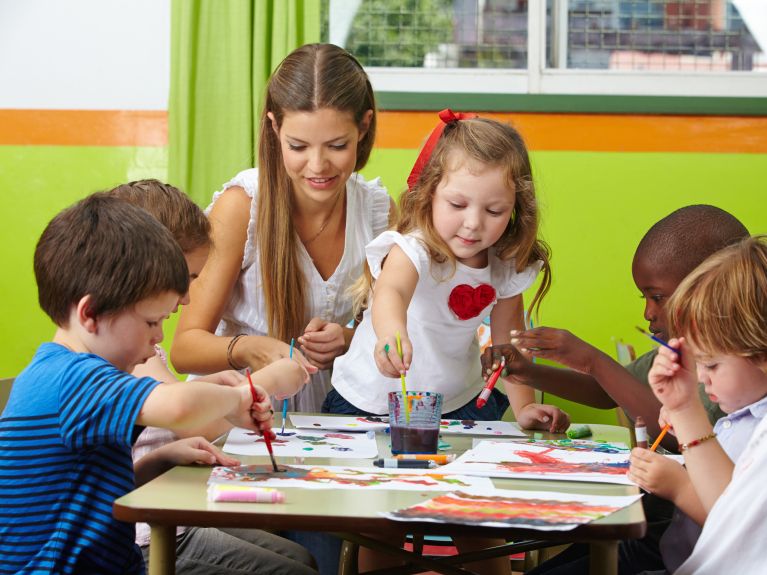Learning about democracy
Participation and involvement are things that children should experience: Political education in kindergartens and schools.

Political education is the basic foundation of a functioning democracy. It is also generally agreed that children and young people should be introduced to it as early as possible. But which contents are appropriate for different age groups? And how can basic democratic values be successfully conveyed? Politics is complex, so how is a child in kindergarten supposed to understand things like the federal system in Germany?
“Although all of this is right, it’s based on a one-dimensional concept of political education,” says education specialist Judith Durand. The consultant in the section Educational Concepts for Childhood is carrying out research at the German Youth Institute (DJI). Her main focus is: How can three- to six-year-olds learn basic competencies that will later enable them to shape democracy. “It’s not simply a matter of conveying facts and knowledge. The purpose of political education is also to enable learning through experience. And that’s precisely where we can start with the youngest ones.” She says that democracy “is also a way of life that manifests itself in the shared culture of day-to-day living.”
It’s about experiential learning firmly rooted in everyday life.
Ms Durand’s colleague Leonhard Birnbacher explains what this means. He is a research consultant in the project Education and Democracy with the Youngest (BilDE) in the section Children and Childcare at DJI: “It’s about experiential learning firmly rooted in everyday life. The learning of democratic values such as equality, participation and tolerance. This can begin with children working through conflicts together. Or taking an active part in everyday life, for instance when they join in decisions about food and meals, through to the election of children’s councils that play out the election process – including designing their own election posters.”
“The decisive factor is how the educators themselves set an example for democratic values, both among themselves as well as with the children,” says Judith Durand. “If rules are made, then the team members should stick to them as well. One of the most counterproductive experiences a child can have at kindergarten is when she or he concludes: ‘I said what I think, but they still just do things the way they want anyway.’”
You would like to receive regular information about Germany? Subscribe here:


